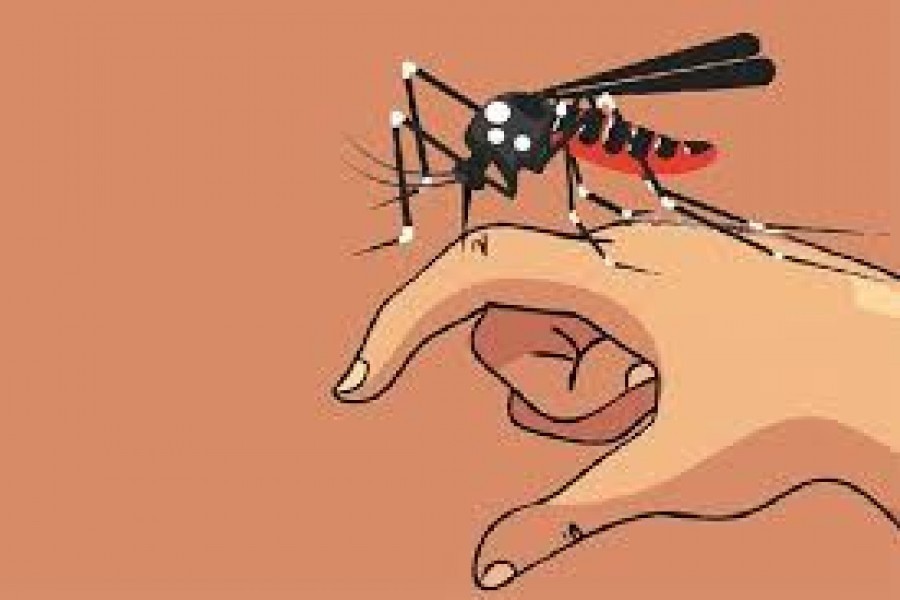Around 40 per cent of total dengue patients in the capital Dhaka have been detected in the Dhaka South City Corporation (DSCC) areas, the corporation's Mayor Sheikh Fazle Noor Taposh said on Wednesday.
"We have received information from the Directorate General of Health Services about dengue. We have detected that 832 people or 40.31 per cent of the total dengue patients are in DSCC areas," said the mayor at the 11th inter-ministerial meeting held at the Secretariat.
Besides, some dengue patients, hailing from other places outside the capital, also got admitted to different city hospitals, he added.
He said the DSCC prepared a list of dengue patients, mentioning the areas these people belonged.
Later, the corporation's teams, led by councillors, visited the dengue-affected areas and destroyed the Aedes mosquito larvae there, said the mayor, adding that the DSCC staff used to do fogging in the whole area during the afternoon.
"We (DSCC) have been doing our best as per our plan to keep Dhaka city dwellers safe from the menace of Aedes mosquitoes," he added.
He said that the corporation had taken an all-out initiative to reduce the sufferings of the city dwellers from dengue as they had endured a bitter experience in 2019.
Mentioning the dengue situation in South and South-East Asia, Mr Taposh said that Vietnam had detected 37,420 dengue patients while Sri Lanka had 10,371 in July last.
India is yet to provide the information about how many people have so far been affected with dengue there, he said.
Referring to expert opinions, the DSCC mayor said the region was a favourable breeding ground for aedes mosquitoes due to the nature of climate here.
Excessive rain helps breeding of aedes mosquitoes, he said, adding that aedes mosquitoes had got a favourable climate for breeding this year.
He said the rainfall had appeared as an adversary to the government efforts to curb the spread of dengue.
Unplanned urbanisation is another reason behind mosquito breeding and subsequent dengue outbreak, the mayor mentioned.
Sometimes, it is difficult to destroy sources of mosquito breeding grounds located on the rooftop gardens of the residential buildings, he said.
He, however, expressed his satisfaction that they had succeeded in giving a respite to the city dwellers from dengue and controlled the spread of aedes mosquitoes.
Mr Taposh called upon the health department officials to play a proactive role and parents of every household to be more conscious, in order to deal with dengue.
He hoped that the number of dengue patients would decrease from now onwards and the figure would come down to zero once the climate becomes favourable.
While presiding over the meeting, Local Government, Rural Development and Cooperatives Minister Md Tajul Islam said they had found larvae of aedes mosquitoes at many houses and buildings owned by educated people and high-ups in the society.
He alleged that the government officials had faced resistance while conducting anti-mosquito drives at those places.
"It was very unfortunate and we did not expect it," he said, adding that the government was set to go for integrated vector management for dealing with dengue.
The minister said 1,405 persons were affected with dengue last year and this year's figure had surpassed the previous one.
He, however, said that the country's dengue situation was now comparatively better following different measures taken by the government.


